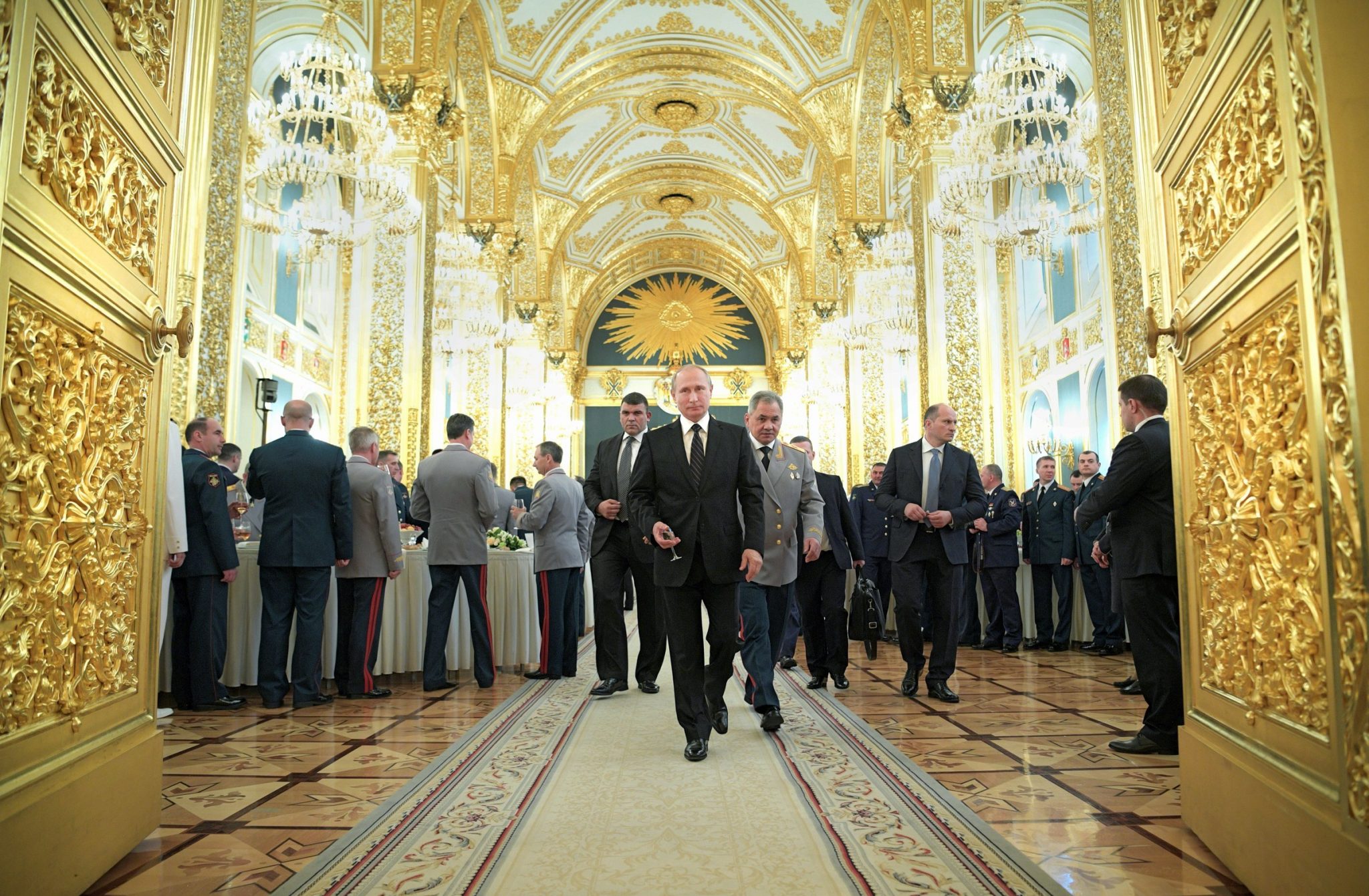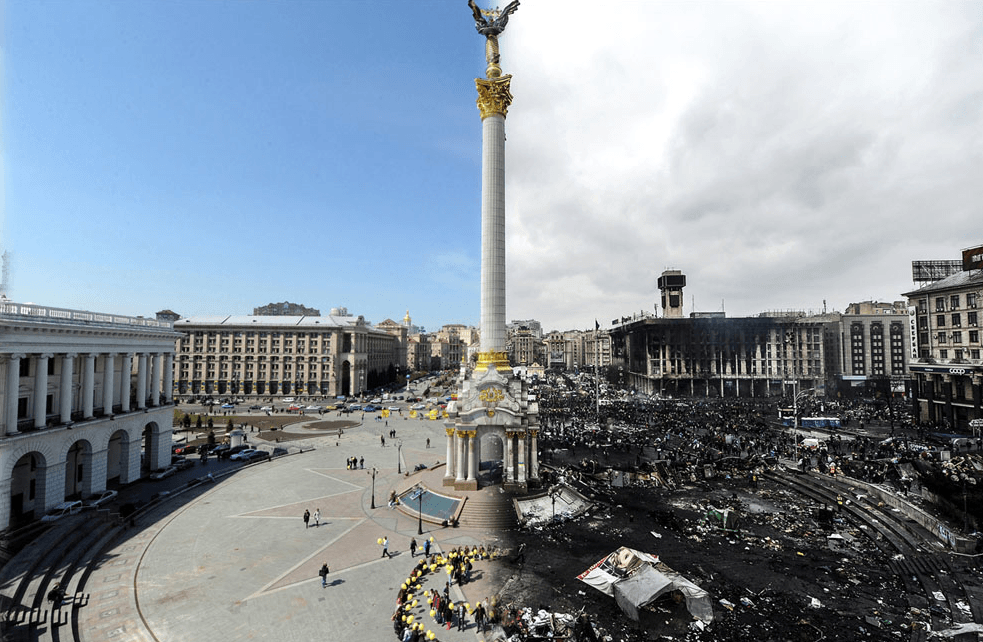
[toggler title=”Editor’s Note” ] ‘zapret’ (запрет) is the Russian word for ‘ban’. [/toggler]
There is much to unpack in the US Treasury Department’s latest sanctions expansion, announced on 6 April. Seven Russians explicitly labeled oligarchs by Treasury, their main Russian businesses, and 17 government officials were added to the list of Specifically Designated Nationals (SDN).
Individuals and companies labelled as SDNs have their US assets frozen, while US persons are barred from doing business with them. The implications for a number of private businesses globally are significant and these designations represent a tactical escalation of the US sanctions program. Questions remains as to whether the Kremlin responds by circling the wagons and how exactly the US and Russia message sanctions.
Globalized Elites
The 6 April sanctions expanded beyond previous designations to include President Vladimir Putin’s inner circle and associated business figures – those who often owe most or the entirety of their careers to their relationship with Putin. Putin’s own son-in-law, Kirill Shamalov, made the list, though the state of his relationship with Putin (both professional and familial) has been questioned, as did another member of the Rotenberg family.
However, three of those targeted – Suleiman Kerimov, Oleg Deripaska, and Viktor Vekselberg – are titans of Russia’s private industry who serve as leading conduits for Russian-Western investment and business relations. Russia’s elites are global, and have been for some time. These sanctions signal a clear effort to reverse that process.
[alert type=white ]Author: Maximilian Hess is a political risk analyst working for AKE International.[/alert]
The move is a particularly striking setback for Deripaska – no stranger to controversy. Most recently, he stepped down as president of Rusal and EN+ in February after launching a feud with fellow oligarch Vladimir Potanin over control of Norilsk Nickel, and that just weeks after being embroiled in Russia’s presidential election and US political furor.
The two firms he controls are now on the SDN list, a sanctions label more prohibitive than that applied to state oil giant Rosneft, arguably the firm most closely-tied to the Russian state, which is on the less-restrictive Sectoral Sanction Identifications (SSI) list.
What is particularly striking is how quickly Deripaska’s troubles have mounted. He was still riding high and partying with the global elite in the Swiss mountains at Davos as recently as the end of January. Last November his EN+ listed in London, seen as potentially hailing the return of ‘Londongrad IPOs’. This all came despite Deripaksa’s rather unflattering coverage in 2017 that resulted from US Special Counsel Robert Mueller’s investigation.
The world’s largest commodities firm, Glencore, announced it was supporting EN+’s listing and would swap its share in Deripaska’s aluminum company, Rusal, for a stake in it. That deal has been repeatedly delayed and may now no longer be feasible.
Deripaska’s longstanding desire to seize control of Norilsk Nickel will likely have to be called off only a day after Kommersant reported he was expected to join Norilsk’s board. If Deripaska is forced to give up on Norilsk, it would signal US sanctions’ ability to shape the distribution of spoils amongst the Russian oligarchy, encroaching on the Kremlin’s domestic power.
The most-financially painful result: US stockholders have thirty daysto dispose of their shares in Deripaska’s firms. They will also be cut off from the Western financial markets they had frequently tapped. EN+ and Rusal, explicitly sanctioned, saw their share price fall 20% the day the news broke.
The fallout was not as immediate for Vekselberg, whose Renova Group holding company is not publicly traded. However, two of Renova’s major assets are listed in Switzerland: Sulzer and Oerlikon. Both avoided the large share price suffered by Deripaska’s listed businesses on April 6. Vekselberg is among the wealthiest individuals resident in Switzerland, and, unlike many oligarchs, views the country as not merely a place for his skis and bank accounts.
The two firms make him a major domestic business figure in Switzerland. His majority stake in Sulzer, an engineering firm, has already caused significant local concerns, as has his interest in industrial technology-maker Oerlikon (although the fact the shareholding is only 49% means they are not as immediate as for Sulzer).
Vekselberg’s now-sanctioned holding company Renova is invested across various spheres of the Russian economy as well but, compared to Rusal or EN+, appears to have moved away from Western financing markets. However, Vekselberg certainly remained active in Western markets, preparing to launch an IPO in Milan for his firm Octo Telematics, although that will likely now be shelved.
Illustrating how close Vekselberg’s ties are to the West, this piece was in-part written in the café at the Tate Modern’s Blavatnik Building, named after Vekselberg’s closest business-partner: Sir Len Blavatnik. Blavatnik was knighted by the Queen of England last June in part for his donations to Oxford, which defended naming its school of government after him on the same day that Vekselberg was sanctioned. In February, Blavatnik joined Vekselberg in raising their stake in Prokhorov’s Rusal.
Finally there is Kerimov, who controls the world’s seventh-largest gold miner, Polyus Gold, nominally controlled by his son Said. The firm returned to the London Stock Exchange last July, two years after delisting.
However, Kerimov’s sanctioning is symbolically significant given his prominence as a conduit for Russian-Western financial ties. He was once, albeit briefly, among the largest individual shareholders of Goldman Sachs and Morgan Stanley. His addition to the US Treasury’s SDN list is certainly a signal to others in the Russian business elite cannot ignore.
Kerimov faces further legal headaches. He was arrested in France last November and is facing a money laundering trial. Kerimov’s legal situation has spooked many wealthy Russians (and others) who use the South of France’s extremely expensive property market as a store for capital.
New sanctions strategy
The sanctions represent a clear escalation and may define a new US strategy. Rather than targeting Putin’s internal elites’ ability to enrich themselves abroad and enacting costs on the Russian economy through efforts like the sectoral sanctions, they could be an opening salvo saying sanctions can and will be used to actively push the Russian elites back into Russia proper.
At the same time, the move comes less two months after the White House fumbled its implementation of sanctions mandated by CAATSA.“[This] list means nothing. I was in the US and meeting with top guys from US banks and there was no problem,” Phosagro CEO Andrei Guryev told Intellinews in March.
Treasury subsequently insisted the classified oligarch list was a far more serious effort than the public one, but the mishandled messaging allowed many oligarchs to breathe a deep sigh of relief. Therefore, the manner and extent of the reaction these new sanctions prompt in other members of the Russian elite will in large part depend on how upon messaging both out of Washington and Moscow.
Sending signals
While the sanctions send a clear message that the US Treasury is seeking to counteract Russian elite’s international reach, doing so consistently could prove difficult. Deripaska’s inclusion – particularly at a time when his ties to Trump campaign officials are under the US Special Counsel’s scrutiny risks making a political issue out of the dichotomy between the Treasury’s aggressive Russian sanctions action and the White House.
For now, this has not proven a concern and US President Donald Trump has largely been silent on Treasury’s sanctions actions.
The signal being sent by the Kremlin so far is to take the sanctions in stride, and to note they will not affect its geopolitical efforts or change its policy course. Gazprom CEO Alexei Miller said he considered being added to the sanctions list as a reason to be proud, questioning what had taken the US so long.
However, like Rosneft, Gazprom is only under SSI sanctions. And while its head, Igor Sechin, is on the SDN list, that situation is far more manageable than the challenges Rosneft would face if it were added to the SDN list. Contingency plans are likely already in-place at Gazprom, and the impact of Miller’s sanctioning, or that of other heads of state-owned enterprises, will be muted.
The Russian state has marshalled a great deal of support for state-run firms, undertaking costly and politically-messy actions to support them, which has helped limit the fallout after their costs of doing business were raised significantly by US and EU sanctions undertaken in 2014-2016.
From here to where
Now the Kremlin must now decide whether it should also marshal support and funds for the affected elites’ interests. It also remains to be seen whether the new sanctions are largely an escalation driven by domestic concerns or whether they portend further escalations that will similarly affect so many global businesses.
On the former, the Kremlin could circle the wagon. Kerimov has agreed to cooperate with his trial in France but the Kremlin could order him to cease doing so, although this would be a major risk for Polyus. It could seek to hand control of Norilsk to Deripaska, risking its financial well-being for political gain.
Blavatnik could be handed control of Vekselberg’s assets or be brought into the picture in another manner, such as to accuse the West of hypocrisy (although again this certainly would not be risk-free). Taking such actions would be a strong signal to Russians holding money and sway abroad to return capital to Russia, which they so far have been unwilling to do.
Treasury’s escalation of sanctions spell out what it could go after next: the Kremlin’s ties to organized crime. MP Vladisvlav Reznik, currently facing money laundering charges in Spain, was listed, as was MP Vladimir Skoch. Both are alleged to have deep ties to organized crime. Venezuelan national Miguel Jose Leone Martinez, whom Mexican media reports describe as an associate of the Jalisco Cartel New Generation, was also listed. If elites cannot get their money out of Russia legitimately, best to stop them from being able to do so illegitimately as well.
[toggler title=”Source” ]This piece was originally published by Bear Market Brief.[/toggler]


